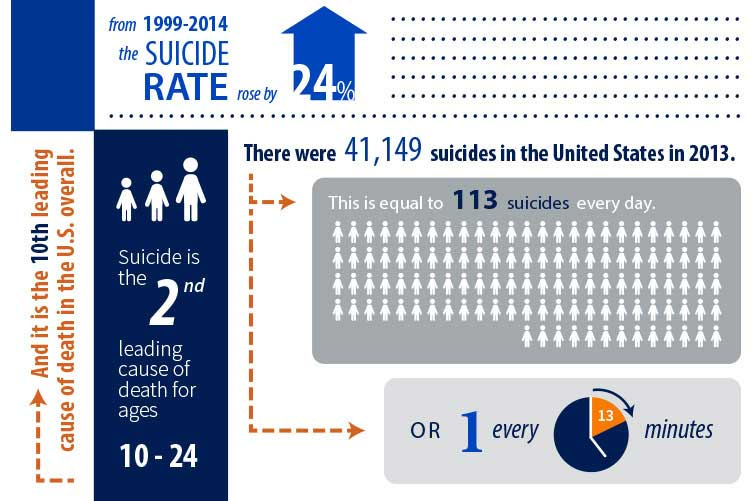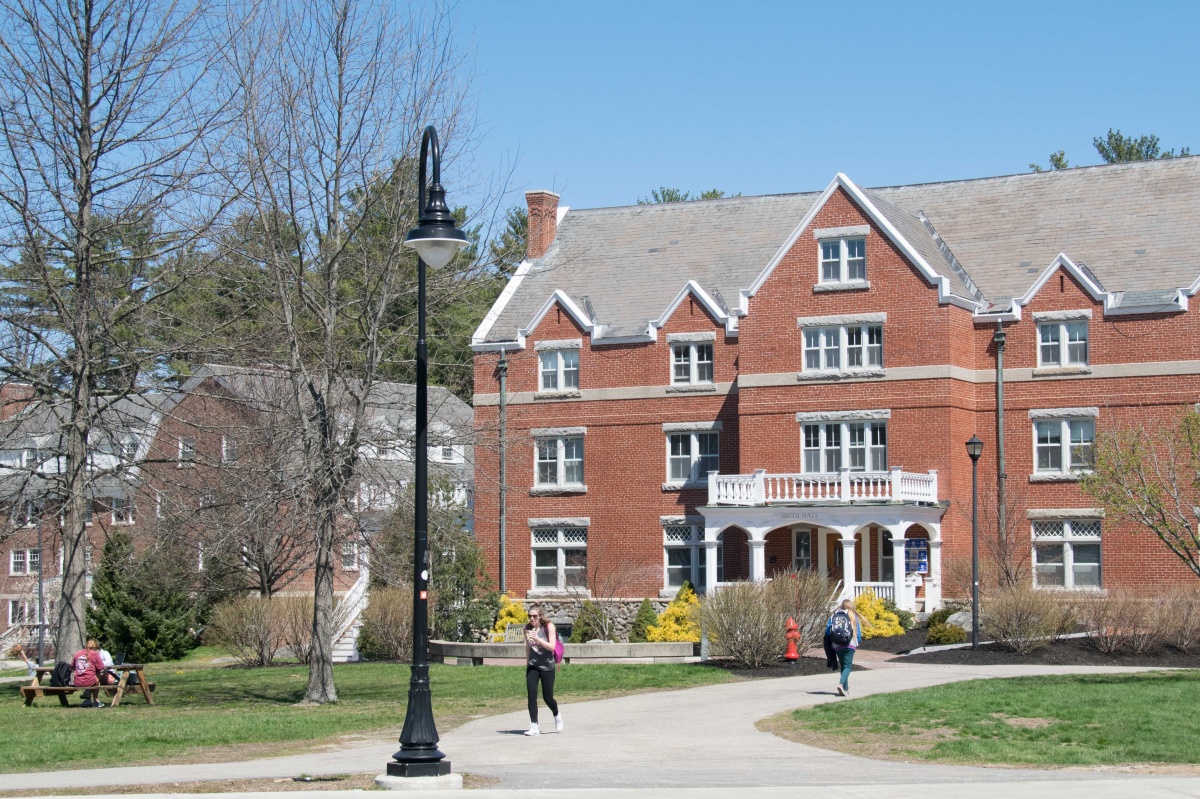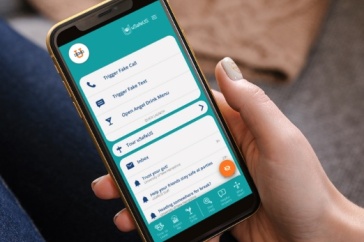
Picture your typical small New England liberal arts college. Now picture that campus completely void of students — 1,300 people, just gone in one year.
It happens every year, but it isn’t because of a natural disaster or illness. The cause is suicide, and at UNH, Counseling Center director David M.J. Cross and assistant director of outreach and assessment Sean Moundas are among those behind the effort to stem that tide.
Cross and Moundas point out that suicide is the second-leading cause of death for young adults between the ages of 18 and 22. The New York Times reports that federal data shows the nation’s suicide rate is the highest it has been in almost 30 years.
Such statistics, coupled with the culture of fear that has grown on campuses in the wake of events like the 2007 Virginia Tech shooting, where a suicidal individual killed dozens before taking his own life, have prompted calls for improved education about suicide. At UNH, the Counseling Center, along with faculty, administrators, staff and students, are working to turn the tide of such tragedies by expanding the university’s commitment to being a “community of care,” Cross explains.
That’s where Kognito comes in.
The online program provides free access to easy-to-use, interactive training for faculty, staff and students and supplements the face-to-face work the Counseling Center, Behavioral Intervention Team and UNH’s diverse suicide prevention committee are doing on campus.
The avatar-based training welcomes student or faculty/staff participants into real-world scenarios where they are asked to decide how best to help students dealing with specific problems. In the At Risk module for faculty and staff, for example, participants meet a fictional professor who has identified five students he is concerned about, interview the fictional students, examine the possible risk factors and choose the most appropriate action.

The Counseling Center staff hopes all members of the UNH community will take the free training. Some faculty members are taking the program a step further, integrating Kognito into their classrooms.
“I thought it might be helpful to students at some point in their lives to have had this training while in college,” says Susan Horne, visiting assistant professor of decision sciences at Paul College. “I never dreamed that it would directly impact the lives of students while they were still at UNH.”
However, she explains, that is exactly what happened.
“Some students have self-identified as needing counseling and other mental health services while taking the training. Others were able to recognize the need to intervene with close friends who were in life-threatening situations,” says Horne, who offered Kognito training modules for extra credit to students in each of the 16 courses she taught over the past four semesters.
Michele Loos, clinical assistant professor in the College of Health and Human Services, teaches a course on death and dying and has students complete Kognito’s peer-to-peer training before her course’s module on suicide begins.
“Students have told me the training was very helpful in alerting them to some of the clues or cues that a person might be exhibiting,” she says.
Loos is considering expanding the use of Kognito in the classroom to clinical staff and first-year nursing students.
“I don’t think there’s a downside to doing it,” she says.
Last year, the Counseling Center’s Moundas, working with the Suicide Prevention Committee, applied for the Garrett Lee Smith campus suicide prevention grant, which resulted in funding through the Substance Abuse and Mental Health Services Administration to expand UNH’s use of Kognito’s At Risk training for increased access to the suicide prevention module and other programs aimed at raising their cultural awareness: Veterans on Campus, LGBTQ on Campus and Family of Heroes.
Moundas and Cross both hope more faculty, staff and students will take the Kognito training.
“We’re a community of care,” Cross says, adding he hopes Kognito will result in “more eyes and ears in our community” watching out for students in need.
As Horne sums it up, “Putting this training in front of students has reaped tremendous benefits if only one person was helped. I am humbled to have played a tiny role in helping these wonderful young men and women feel more comfortable seeking vital assistance for themselves and others. It is perhaps the most important impact I have had in my three years at UNH.”
“College is such a stressful time that we should all be aware,” Loos says. “By being aware of the signs, you could intervene — and potentially save a life.”
To learn more about Kognito, visit https://www.unh.edu/counseling-center/kognito.
This information was developed in part under a grant number 1U79SM062506-01 from the Substance Abuse and Mental Health Services Administration (SAMHSA), U.S. Department of Health and Human Services (HHS). The views, policies and opinions expressed are those of the authors and do not necessarily reflect those of SAMHSA or HHS.
-
Written By:
Jennifer Saunders | Communications and Public Affairs | jennifer.saunders@unh.edu | 603-862-3585


















































